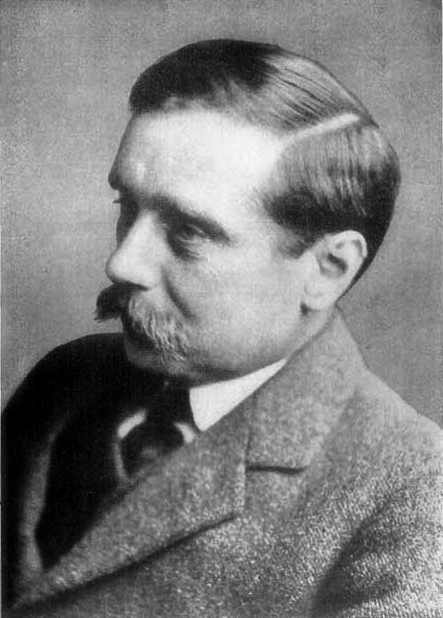“The Obliterated Man” is a short story by the English author H. G. Wells, first published in New Budget on 15 August 1895 under the title “The Sad Story of a Dramatic Critic”. It was subsequently included in The Plattner Story and OthersCollection of 17 short stories by H. G. Wells, first published in 1897. (1897), and The Country of the Blind and Other StoriesCollection of 33 short stories by H. G. Wells, first published in 1911. (1911).[1] Told as a first-person narrative, it is an account of a shy young man who reluctantly agrees to become a drama critic, and the effect that decision has on his personality.
Synopsis
The story is told by Egbert Craddock Cummins, the dramatic critic for the Fiery Cross, a shy young man with a slight stutter and a taste for grey clothes, who is engaged to a very nice girl named Delia. Pressed by his editor, Barnaby, he had reluctantly agreed to take on the role of the paper’s dramatic critic, despite never before in his life having attended any theatre. Barnaby thrusts four tickets into his hand for theatrical performances, the first due to start in twenty minutes.
Cummins is struck by the “phenomenal unnaturalness of acting … the fantastic gestures, the flamboyant emotions, the weird mouthings, melodious snortings … and other emotional symbolism of the stage”. But the experience makes a deep impression on the young man, and he finds himself imitating some of the actors’ more exaggerated gestures. Over time a kind of “theatrical veneer” begins to “plate over” his personality, threatening to obliterate his own individuality. His fiancé Delia notices the change in his demeanour and does not approve; thinking that it makes the couple look ridiculous she ends their relationship.
Despite his detestation of actors, Cummins begins to find that it is only in their company that he can feel inconspicuous. He ends by wondering if the only course left open to him is to end his “self-effacement” and take to the stage himself, as it only there that he will once again be taken seriously.
See also
- H. G. Wells bibliographyList of publications written by H. G. Wells during the more than fifty years of his literary career.
External links
- Full text of “The Obliterated Man” at Project Gutenberg

